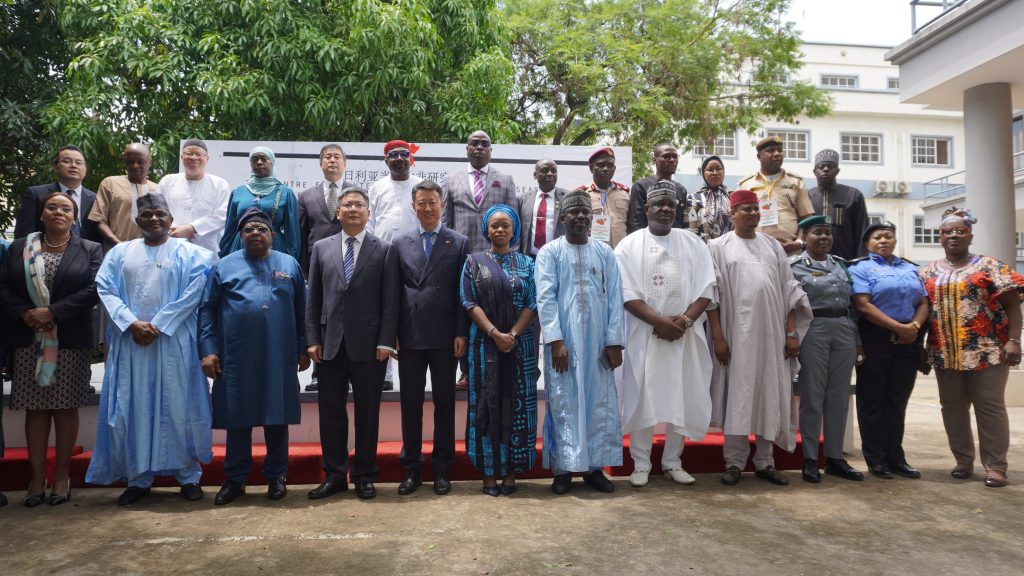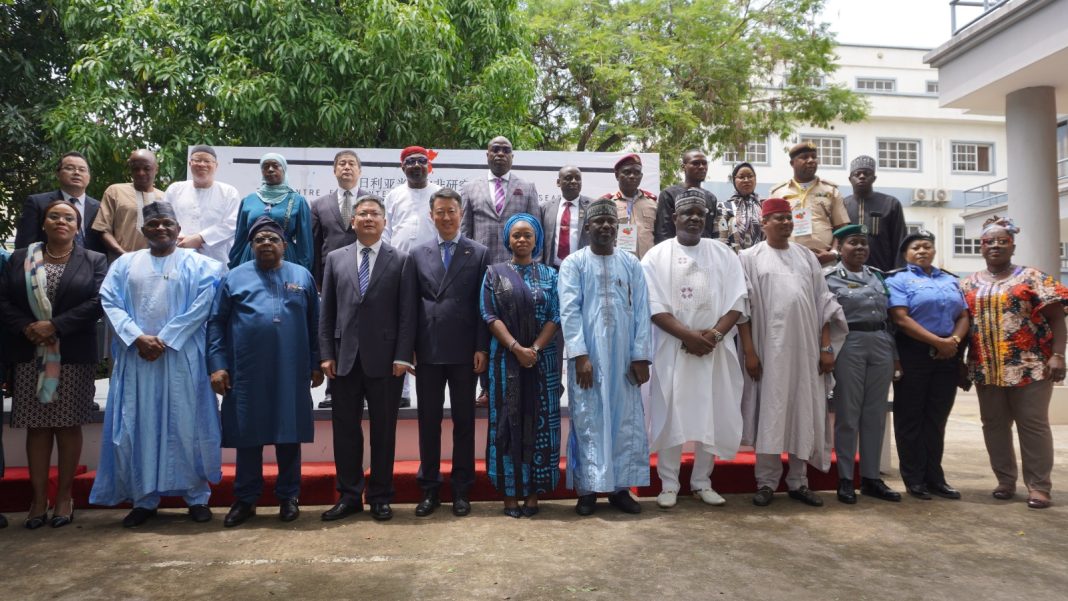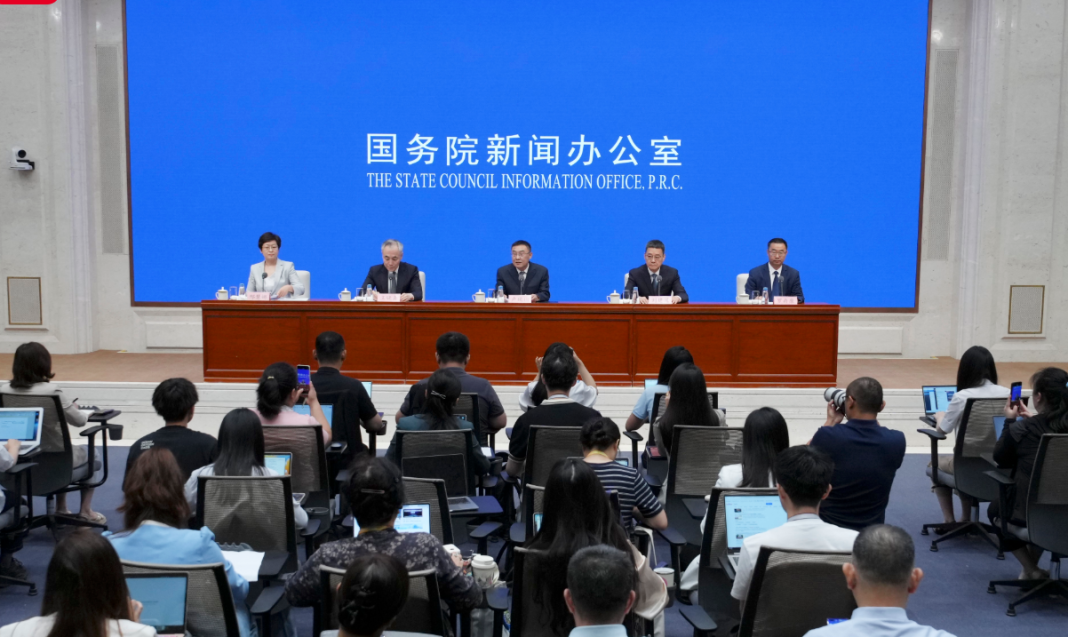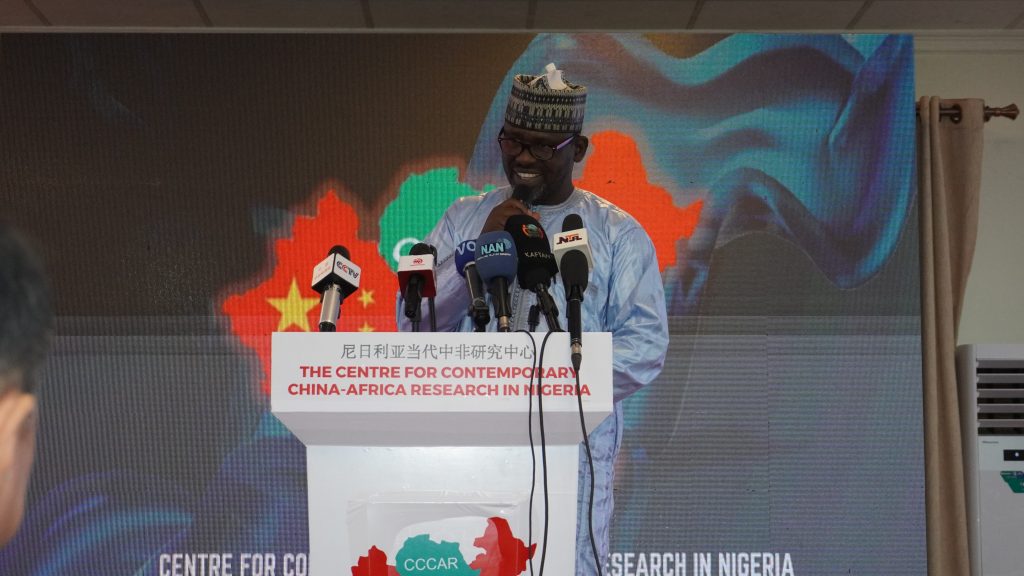
Modernisation
By Sarafina Christopher
Abuja, June 26, 2025 – Prof. Sheriff Ibrahim, Director of the Centre for Contemporary China-Africa Research has underscored that China presents authentic modernisation opportunities for the African continent.
Ibrahim made the assertion on Thursday in Abuja during the International Conference (West-Africa) Second Post-FOCAC Abuja Forum organised by the Centre for Contemporary China-Africa Research in Nigeria.
The seminar, with the theme “Joining Hands to Advance Modernisation and Achieve the Ten Partnership Actions in an All-Weather China-Africa Community with a Shared Future,” highlighted the collaborative efforts between the two regions to strengthen bilateral cooperation.
According to him, the partnership will significantly boost Africa’s development trajectory and enhance technological advancement, ultimately empowering nations to achieve sustainable growth.
He also expressed optimism about the shift in Africa’s fortunes, stating: “Africa is coming out of the gloomy days. China gives us a genuine shot at modernisation through mutual trust and cooperation,” he said.
Ibrahim also praised China’s long-standing investments of: $5 billion in 2006, $60 billion in 2015 and 2018, and $50.7 billion last year which has been driving African industrialisation and development forward.
He described the Ten Partnership Action Plans announced by President Xi Jinping as a “historic pathway” to mutual progress across trade, health, green development, security, and people-to-people exchanges.
“No modernisation of the world is possible without Africa and China, because one-third of the world’s population lives within these two regions,” he said.
He explained that the action plans are structured around six pillars just modernisation, openness, people-centric development, inclusivity, sustainability, and peace offering a framework for Africa’s growth ambitions in the 21st century.
“Africa will not just modernise but lead a new era of south-south cooperation with China as a trusted partner,” Ibrahim said.
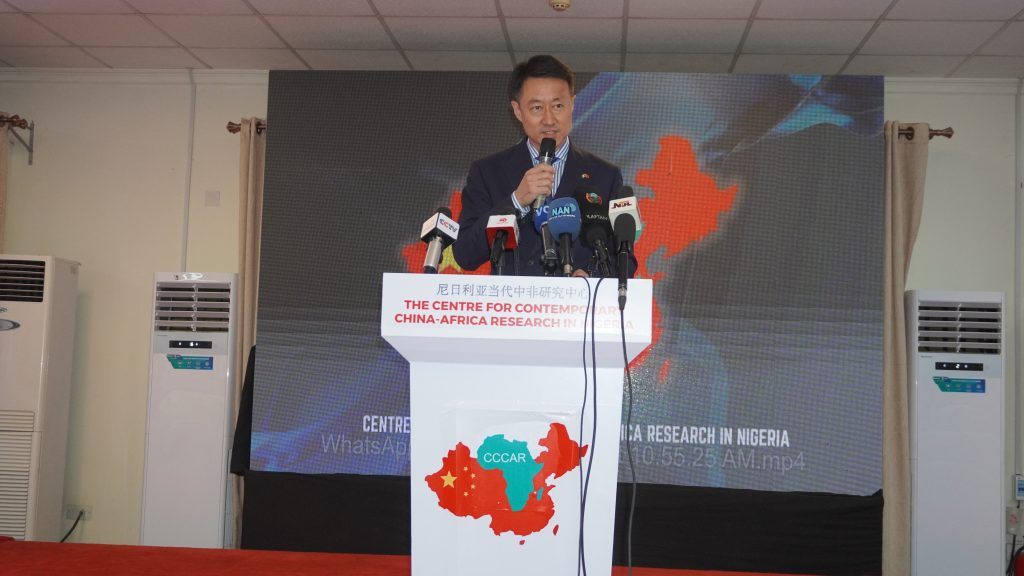
The Chinese Ambassador to Nigeria, Amb. Yu Dunhai, called the seminar a milestone in cementing China-Africa trust, nine months after the Beijing Summit of the Forum on China-Africa Cooperation (FOCAC).
“The foundation of our cooperation is strong and our shared interests in prosperity, peace, and development remain more relevant than ever as we celebrate FOCAC’s 25th anniversary,” he said.
He also recalled that at the recent FOCAC Ministerial Coordinators’ Meeting in Changsha, China reaffirmed its commitment by announcing zero-tariff treatment for 100% of goods from 53 African nations.
“China will also expand capacity-building programmes and support African exports with better customs facilitation and promotion of premium products
“The action areas going forward include AI partnerships, digital trade, green industries, and institutional cooperation in finance and the rule of law all critical for Africa’s leap into the future,” Yu added.
Also speaking, Mr Gong Weibin, Vice-President of China’s Party School, said that Chinese modernisation was rooted in socialism and tailored to national realities.
“It’s a model many African countries can adapt to local needs.
“This is the socialist modernisation led by the Communist Party of China, one that shares the common features with modernisation processes of other countries, but is also deeply rooted in China’s own national conditions and distinctive characteristics,” he said.
Gong also emphasised that the Chinese path balanced population growth, ecological health, and equitable prosperity values increasingly mirrored in Africa’s own development strategies.
Joseph Tegebe, Director General of the Nigeria-China Strategic Partnership (NCSP), detailed Nigeria’s alignment with the Ten Partnership Actions, especially in industrialisation, trade, and healthcare.
“Our bilateral framework removes bottlenecks and aligns national priorities with China’s global cooperation model.
“Nigeria has become a key player in implementing these actions effectively,” Tegebe said.
He also said that China’s recent removal of tariffs for African exports came into effect last week, calling it a “game-changing opportunity” for Nigeria’s push toward becoming a net exporter to China.
On connectivity, Tegebe said over $8 billion in new infrastructure projects are underway, part of the Belt and Road Initiative that includes logistics, power, and digital corridors across Nigeria.
“Through the PVAC initiative, Nigeria is tapping into China’s support to build a resilient healthcare manufacturing ecosystem.”
“Agricultural partnerships are also thriving, with 6,000 hectares committed to demonstration farms and 500 Chinese experts assisting in capacity building in Nigeria’s rural sectors,” Tegebe said
